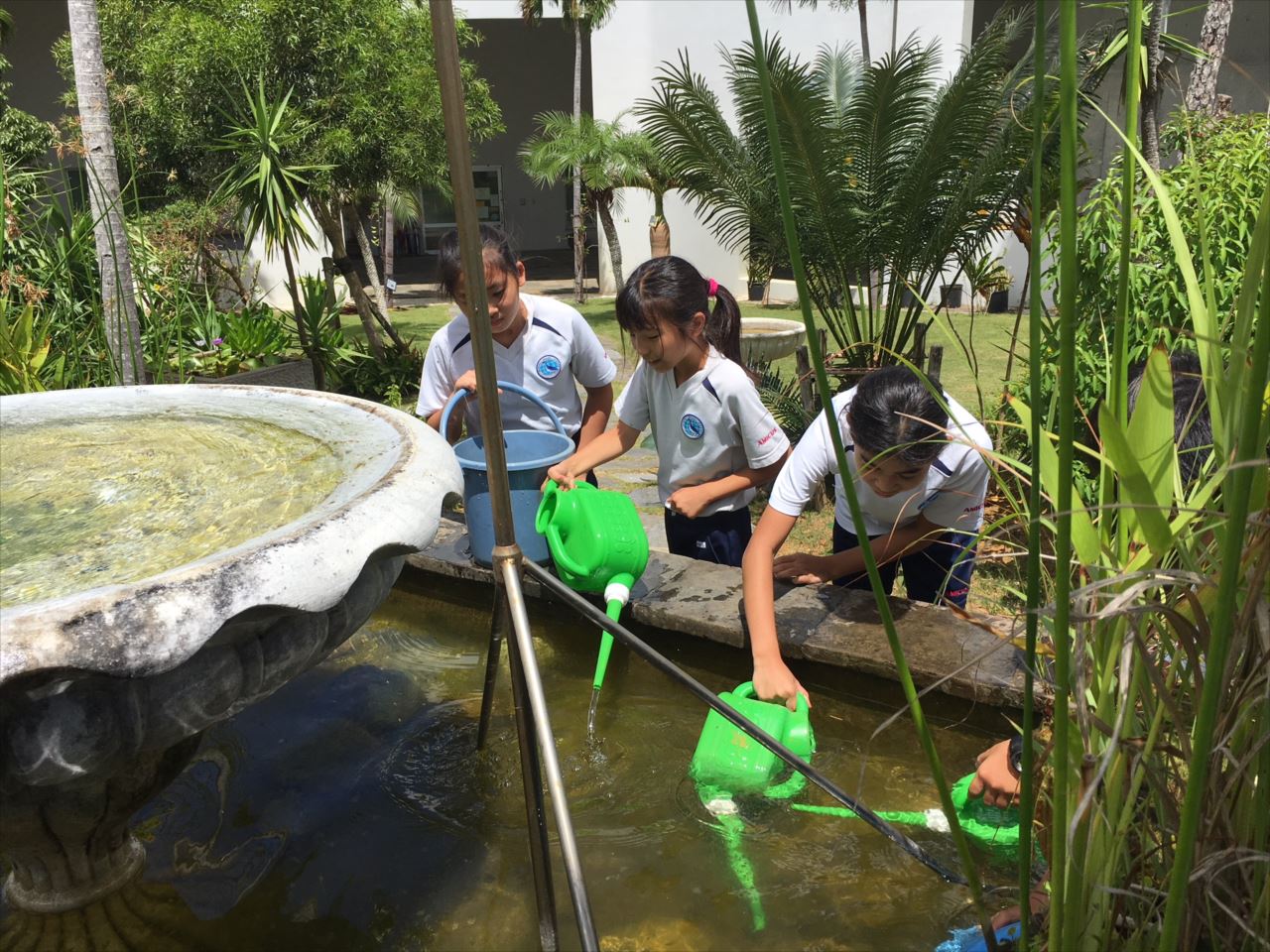A week has passed since Mr. Tokutake came to deliver his lecture.
Today, we cleaned the fountain pool in the school courtyard, where we plan to keep and care for the killifish.
Let’s take a look at how the G5 students went about their mission.
We started by drawing some water out, little by little, being careful NOT to scoop any fish out of the pool.
Then we took the extra water down to “the rice fields” we made the other day.
Especially in Okinawa, water is precious, and it’s very important to embrace the “Mottainai” attitude.
Then, we moved rocks and plants from the pond, as we anticipate some difficulty as we approach the task of catching the fish from among these potential hideouts / obstacles.
“Ooh…It’s heavier than I imagined!!”
“Eww!… Moss!!… It’s slippery and gross!!”
“Ok, this is heavy… Are you ready? 1, 2, and go!!”
Now that we’ve cleared the obstacles… the view became clear. Let’s go ahead, and try catching the fish!!!
“Hey, over there!!! It swam towards you!!!”
“What? Where?”
The baby killifish and guppies are fast swimmers!!!
We were amazed at how quick their number increased in such a short time!
“Wow, how many ARE there!?”
This is why some of these alien species are such an imminent threat, and equally why the native species need protection.
It feels fresh and clean, once the pond is empty. You can see how clean it’s become.
There a bunch of discoveries too, like on Japanese TV, when they empty out big lakes in regional areas of Japan.
But we’re not finished yet.
We went back to the Science Room to check the next steps of the project, and of course…. to check our homework assignment from last week.
“The fish we caught today were brought in by us, for our own convenience’s sake. Like I said before, do not release them in any nearby rivers or lakes.”
We deeply understood his words, especially because we now know how difficult it is to remove them. They breed and increase in number so quickly. The students have already discussed with their parents whether or not they’re allowed to take care of these fish. The remainder will be kept in the Science Room.
We learned in depth about how to responsibly care for life, in context of its natural habitat.
The pond will be dried for a month during the summer holiday. We need to be extra careful that there are no eggs left in the pond or else they will vastly breed.
Let’s see what’s going to happen next!!!













